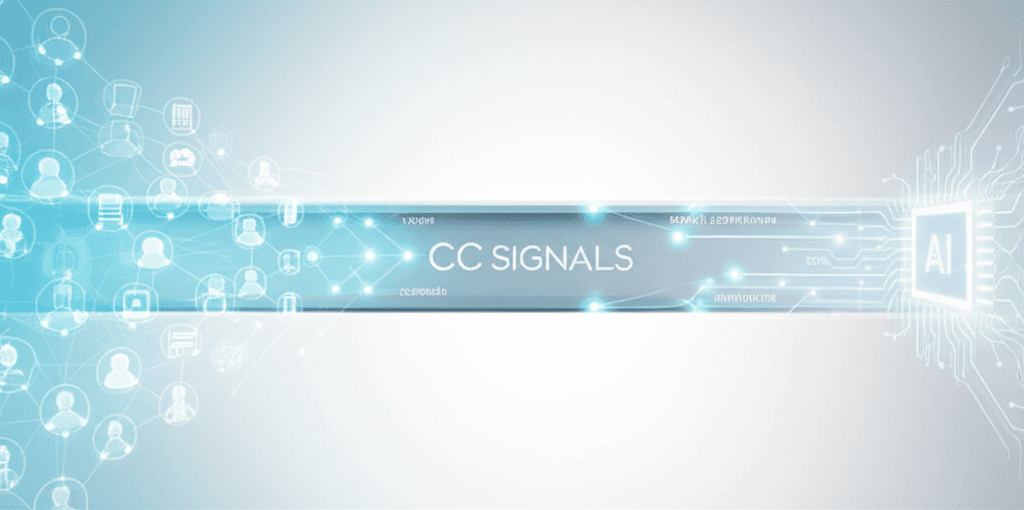Creative Commons unveils CC Signals: New pact for fair AI data
Creative Commons’ CC Signals offers a groundbreaking social contract for ethical AI, ensuring creators’ consent and reciprocity.
June 30, 2025

In an effort to establish a more equitable and sustainable ecosystem for the age of artificial intelligence, the nonprofit organization Creative Commons has introduced a new framework called CC Signals. This system aims to create a new social contract between those who create and steward online content and the developers who use that data to train AI models.[1][2] The initiative represents a significant step toward fostering a healthier digital commons, where the immense value of shared knowledge and creativity is respected and reciprocated in the era of machine learning. As AI technologies continue to transform how information is created and reused, CC Signals offers a pathway to avoid the pitfalls of widespread data extraction and an increasingly paywalled internet.[1][3]
At its core, the CC Signals project is a preference signals framework designed to bring clarity and consent to the use of online content for AI training.[1][4] It moves beyond the traditional, often rigid, confines of copyright law to establish a more nuanced and flexible system.[5] Stewards of data, from individual creators to large institutions, can use these signals to express their preferences for how their work is used by machines.[1] These signals are designed to be both human- and machine-readable, allowing for clear communication of a creator's intent.[6] The framework is not intended to be a replacement for existing Creative Commons licenses but rather a supplemental layer that addresses the specific challenges posed by AI development.[3] It recognizes that the massive scale of data consumption by AI has created unanticipated uses for publicly available works, straining the existing social contract of the open web.[5][7]
The proposed CC Signals framework is built around several key elements that focus on reciprocity.[5] These elements provide a spectrum of options for content holders to choose from, reflecting different dimensions of how they wish to be acknowledged and how they want to see the broader ecosystem supported. The initial proposal includes four main signal elements: "Credit," which ensures proper attribution; "Direct Contribution," encouraging monetary or in-kind support to the content creator or steward; "Ecosystem Contribution," which directs support to the wider knowledge commons; and "Open," which calls for the resulting AI systems to also adhere to principles of openness.[8] These signals are not necessarily all legally enforceable but are intended to create strong social and ethical norms, incentivizing AI developers to act as responsible citizens of the digital commons.[4][3] The success of this approach hinges on collective action; the more creators and institutions that adopt these signals, the more powerful they will become as a standard for ethical AI development.[9][10]
The introduction of CC Signals comes at a critical juncture for the AI industry and the internet as a whole. The insatiable appetite of AI models for training data has led to tensions, with some platforms resorting to technical barriers like robots.txt files or paywalls to control or monetize access to their data.[11][2] This reactive approach threatens to fragment the internet and undermine the principles of open access that have fueled innovation for decades.[1][7] Creative Commons aims to provide a more proactive and standardized solution, warding off a future where knowledge is locked away.[2][7] By offering a clear and consistent way for creators to state their preferences, CC Signals seeks to foster a relationship of mutual benefit between content producers and AI developers, ensuring the long-term health and sustainability of the digital commons.[6][4] The organization is actively seeking public feedback on the proposal, with plans for an alpha launch in late 2025, underscoring its commitment to a transparent and collaborative development process.[1][10]
Ultimately, the CC Signals initiative is a call for a new pact in the age of AI, one grounded in the values of reciprocity, credit, and openness that have long been the hallmark of the Creative Commons mission.[1] It is an attempt to navigate the complex legal and ethical landscape of AI development by establishing shared ground rules and social protocols rather than relying solely on expanding intellectual property rights.[6][5] The framework acknowledges the legitimate concerns of creators about the use of their work while also protecting the potential for innovation that AI offers.[5][7] As the digital world grapples with the profound impact of artificial intelligence, CC Signals represents a thoughtful and forward-looking effort to ensure that the future of knowledge is open, equitable, and sustainable for all. Its success will depend on widespread adoption and the willingness of the AI community to engage in this new, more reciprocal relationship with the creators and stewards of the data that powers their systems.[11]